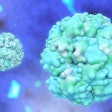
Commonly used noninvasive prenatal tests produced primarily false positives for some of the most devastating genetic diseases, according to an investigative report published by the New York Times.
In some cases, the test results prompted pregnant women to consider abortions or to abort their pregnancies. In one case, the New York Times reported that the fetus was healthy, and the test was inaccurate.
The prenatal tests are designed to look for microdeletions, which are small missing pieces of chromosomes or other instances where there are missing or extra copies of entire chromosomes.
Most companies that offer Down syndrome screening sell microdeletion testing as an optional add-on to the screening.
However, the New York Times analysis showed that positive results on the five most common microdeletion tests are incorrect about 85% of the time.
The most common disorders that were misdiagnosed were DiGeorge syndrome, 1p36 deletion, cri-du-chat syndrome, Wolf-Hirschhorn syndrome, and Prader-Willi and Angelman syndromes, the report said. These diseases can cause problems that range from intellectual disability to heart defects.
The New York Times reported that two syndromes, Langer-Giedion and Jacobsen, are so rare that there is not enough data to evaluate how well the tests work.
The article implicated several tests, including those by test makers Natera, Quest Diagnostics (QNatal Advanced Test), Myriad Genetics (Prequel test), and Labcorp.



















